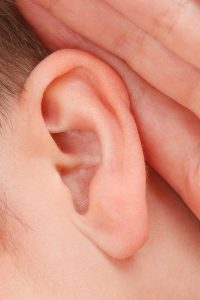Hearing is one of our most essential senses, allowing us to engage with the world, communicate with others, and navigate our daily lives. However, many people tend to overlook the importance of maintaining their hearing health. While eyesight and dental care often receive significant attention, hearing care is frequently neglected until issues arise. Prioritizing regular hearing checkups and care is not only essential for identifying and addressing hearing loss but also for preserving overall wellness throughout life. This article explores how hearing health impacts communication, the relationship between hearing and cognitive well-being, and the importance of early detection and intervention.
Enhancing Communication and Social Connection
Hearing plays a critical role in our ability to communicate effectively. When left untreated, even minor hearing loss can significantly hinder daily interactions, making it challenging to engage in conversations, especially in noisy environments. Over time, this difficulty may lead to withdrawal from social settings, isolation, and even depression. Regular hearing care can help prevent these problems by ensuring that any early signs of hearing loss are detected and managed. Modern hearing aids and therapies have advanced significantly, providing individuals with tools that restore their ability to connect with others. By prioritizing hearing health, people can maintain their relationships and lead fuller, more socially engaged lives.
Preserving Cognitive Health
Recent studies have established a strong link between hearing loss and cognitive decline, especially among older adults. When the brain struggles to process sounds, it reallocates resources that would typically be used for memory and cognitive functions. This overcompensation can contribute to mental fatigue, confusion, and an increased risk of developing conditions such as dementia and Alzheimer’s disease. Regular hearing care can mitigate these risks by identifying hearing impairments early and ensuring they are managed effectively. By supporting hearing health, individuals can protect their cognitive functions and maintain mental sharpness, contributing to overall well-being in the long term.
The Importance of Early Detection and Intervention
One of the most significant benefits of regular hearing checkups is the opportunity for early detection. Many people experience gradual hearing loss over time and may not even realize the extent of the problem until it has significantly impacted their quality of life. Regular screenings can help catch hearing issues before they become severe, allowing for timely interventions that preserve hearing capacity and prevent further damage. Additionally, early intervention ensures that individuals are equipped with the necessary tools—such as hearing aids or other auditory devices—that improve hearing and overall quality of life. Proactive hearing care is essential for ensuring lifelong auditory health and minimizing the long-term consequences of untreated hearing loss.
Comprehensive Services at Hearing Clinics
Hearing clinics play a pivotal role in addressing various aspects of hearing health, offering specialized services that go beyond basic screenings. These clinics provide thorough hearing tests to accurately diagnose hearing loss, followed by tailored hearing aid prescriptions and fittings to ensure optimal performance. Additionally, they manage ear wax buildup, which can often exacerbate hearing issues if left untreated. For those requiring customized solutions, clinics offer custom earplugs to protect against damaging noise levels or enhance sound quality in specific environments. Tinnitus consultation is also a key service, helping individuals manage the persistent ringing or buzzing in the ears that can affect quality of life. To better understand how these services can benefit your hearing health, learn more about the comprehensive care available at specialized hearing clinics. Investing in these expert services can make a significant difference in maintaining and improving your hearing wellness.
The Role of Technology in Modern Hearing Care
Advancements in technology have revolutionized hearing care, offering a range of innovative solutions for those with hearing impairments. Modern cutting-edge hearing aids for sale online feature digital processing and Bluetooth connectivity, offering enhanced sound quality and seamless integration with smartphones and other devices. These technological advancements allow for more personalized hearing experiences, enabling users to adjust settings and program preferences according to their specific needs. Additionally, teleradiology has emerged as a convenient option, allowing individuals to consult with hearing care professionals remotely for follow-up appointments and minor adjustments. Embracing these technological advancements ensures that individuals receive the most effective and up-to-date care for their hearing health.

The Benefits of Regular Hearing Care for All Ages
While hearing care is often associated with older adults, it is equally important for people of all ages. Early childhood hearing screenings are crucial for detecting and addressing hearing issues that could impact language development and academic performance. For adults, regular checkups help catch age-related hearing loss early and prevent further deterioration. Additionally, maintaining hearing health throughout life supports overall wellness and quality of life, making it a vital component of preventive health care. By incorporating regular hearing care into one’s routine, individuals of all ages can ensure they maintain optimal auditory function and enjoy the benefits of clear, effective communication.
Regular hearing care is essential for maintaining overall wellness and quality of life. By enhancing communication, preserving cognitive health, and utilizing the latest technological advancements, individuals can protect their hearing and enjoy a more connected and fulfilling life. Comprehensive services offered by hearing clinics, including hearing tests, aid fittings, ear wax management, custom solutions, and tinnitus consultation, provide crucial support for managing hearing health effectively. Embracing these practices not only addresses current hearing needs but also promotes long-term auditory well-being.







